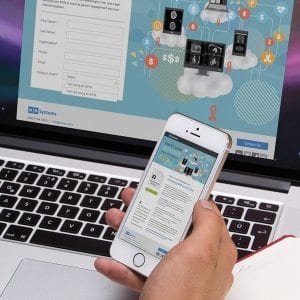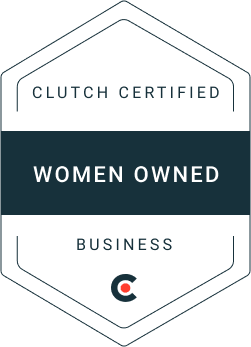 The Millennial generation is not only the largest population, but also the most racially diverse and highly educated generation in American history. They are a tech-savvy, media-connected generation that tends to be needy and impatient; however they are optimistic about the future.
The Millennial generation is not only the largest population, but also the most racially diverse and highly educated generation in American history. They are a tech-savvy, media-connected generation that tends to be needy and impatient; however they are optimistic about the future.
How can millennials combat some of the most common stereotypes?
1. Millennials need positive feedback.
Millennials should realize the only reliable and rewarding feedback they get is their paychecks. Millennials can’t expect their boss to give them pats on the back. In fact, one easy solution is to pat your own back every once in awhile.
2. Millennials love to feel special.
It’s important for millennials to understand the role of their bosses. A boss is not a parent, nor a caretaker. Managers simply don’t have the time or the money to waste on babysitting.
3. Millennials are not perfect.
Millennials are human, meaning they make mistakes just like everyone else. Millennials need to understand that when they receive constructive criticism, to take it with a grain of salt and learn from their mistakes. In a workplace, our peers will often push our limits in order to help us learn and grow as an individual.
4. Millennials, aka “Mr. & Ms. Know-It-Alls.”
Millennials are no doubt an intelligent generation living in a competitive society. Millennails wish they knew everything, but in reality, they don’t. Millennials should show their peers what they do know, but also be willing and eager to learn. Millennials can accomplish this by simply asking several questions or going above and beyond expectations.
5. Millennials are an open book to the public (especially online).
Often, millennials don’t understand the importance of privacy. As technology continues to skyrocket, it’s crucial to for Millennials to stay educated on how social media can play a significant role in their professional careers. Whatever is posted online can be seen by anyone. Reread that last sentence because it’s not only important, but it’s true! Think twice before taking a picture and uploading it to any social media account. Ask yourself, what would my boss say if they saw this?
6. Millennials have no patience.
Smartphones are a mobile device most millennials own today. Okay, Duh! But my point is that we are use to receiving and delivering information at the touch of a button. No wonder Millennials are so impatient! However, in a workplace setting, Millennials must adopt a professional approach. For example, being promoted. A promotion is only earned once you’ve continuously proven yourself over time. In order to reach the top, you must face the climb.
All of the generalities above mention different characteristics that actually make Millennials better workers. Millennails are social butterflies, team players, and hard workers who make ethical business decisions. Also, millennials are generally smarter than their Smartphones.

Millennials should also be mindful about how they communicate in a workplace setting.
How can millennials sound professional in workplace emails?
1. Don’t over emphasis punctuation!!!
A well-placed exclamation point can have a strong impact in a business email. However, being overly excited and using excessive punctuation can send the wrong message. Even though your intentions are different, excessive punctuation can make anyone sound dramatic and over-the-top.
2. NO SHOUTING.
In a professional email, you usually do NOT want to use all capitals. ALL CAPS is like SCREAMING to your reader in a loud, obnoxious and unprofessional way.
3. Say Bye-Bye to Emojis 🙁
Using emoticons too frequently and too early on can be juvenile. Maybe after a Millennial builds mutual familiarity with co-workers, this type of language can be used, but Millennials need to try to avoid it when making first impressions.
4. Be Short & Simple: Don’t write a novel.
People don’t have the time and the patience to read a long email. In fact, the attention span of an average human in 2015 is 8.25 seconds. Thus, the first two sentences must hook your reader while conveying your most important idea.
Watch Your Tone!
Millennials should be aware of the tone they choose to use in their professional writing. Tone is defined as, “the writer’s attitude toward the reader and the subject of the message. The overall tone of a written message affects the reader just as one’s tone of voice affects the listener in everyday exchanges.” While preparing an email or any other written document, writers should immediately think about the following three questions: Why? Who? What?
1. Why am I writing this email? Am I writing it to sell a product? Am I writing it to seek a response? Am I writing it to apply for a job?
2. Who am I writing this email for? Am I writing this email for a recruiter? Am I writing this email for a client? Am I writing this email for my boss?
3. What tone should I use to get my message across? The tone is usually the same across most business messages. However, tone can completely change directions depending on if the message is positive or negative. Consider the following when choosing the appropriate tone.
Positive Message:
- Confidence is key
- Be genuine
- Use short and simple sentences to emphasize
- Create compound sentences to subordinate an idea
- Treat all people equally by using nondiscriminatory language
- Clearly stress the benefits for the reader
- Make sure the level of difficulty is appropriate
Negative Message:
- Be sincere
- You should thank the reader for their input
- Address the faults concerning the individual
- Don’t attack them, just make the issue clear
 Often, millennials are “tone deaf” and unprofessional in workplace emails, which can be dangerous. Using these tips and applying them in their business career will help them make a big professional splash in the workforce.
Often, millennials are “tone deaf” and unprofessional in workplace emails, which can be dangerous. Using these tips and applying them in their business career will help them make a big professional splash in the workforce.









